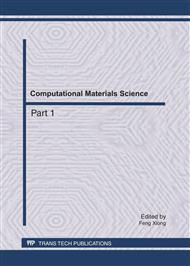[1]
M. Prensky. Digital game-based learning. New York: McGraw-Hill. (2001), pp.117-119.
Google Scholar
[2]
A. Mitchell, C. Smith. The use of computer and video games for learning—A review of the literature. Learning and Skills Development Agency. (2004), pp.7-9.
Google Scholar
[3]
Freitas, S. Learning in immersive worlds: a review of game-based learning. Prepared for the JISC e-Learning Program: http: /www. jisc. ac. uk/media/documents/programmes/elearninginnova tion/gamingreport_v3. pdf. ( 2006).
Google Scholar
[4]
D. Rowan. Getting hooked on an internet role-play fantasy, TIMESONLINE, (2003) http: /www. timesonline. co. uk.
Google Scholar
[5]
Salmon, G. E-tivities: The key to active online learning, London: Kogan Page. (2002)pp.148-156.
Google Scholar
[6]
Kristian Kiili. Digital Game-Based Learning: Towards an Experiential Gaming Model. Internet and Higher Education, (2005), p.13–24.
DOI: 10.1016/j.iheduc.2004.12.001
Google Scholar
[7]
Garris,R., Ahlers,R., and Driskell,.J.E. Games, motivation and learning, Simulation & gaming; An Interdisciplinary Journal of Theory, Practice and Research. (2002).
DOI: 10.1177/1046878102238607
Google Scholar
[8]
Maja Pivec, Olga Dziabenko & Irmgard Schinnerl. Aspects of Game- Based Learning [EB/OL]. Available from: http: /www. unigame. net/html/I-Know GBL-2704. pdf.
Google Scholar
[9]
Bakar, A., Inal, Y. & Cagiltay, K. Use of commercial games for educational purposes: will today's teacher candidates use them in the future?. In Proceedings of World Conference on Educational Multimedia, Hypermedia and Telecommunications (2006).
Google Scholar
[10]
Cengiz Tüysüz. Effect of the computer based game on pre-service teachers' achievement, attitudes, meta-cognition and motivation in chemistry. Scientific Research and Essay. (2009).
Google Scholar
[11]
Bottino RM, Ferlino L, Ott M, Travella M . Developing strategic and reasoning abilities with computer games at primary school level. Computers and Education (2007), pp.1272-1286.
DOI: 10.1016/j.compedu.2006.02.003
Google Scholar
[12]
Royle, K. Game-Based Learning: A different perspective. Innovate, (2008).
Google Scholar
[13]
YU Hong, WANG Xiu-kun, MENG Jun. Mining maximal frequent itemsets using the ordered FP-Tree(in Chinese). Control and Decision . (2007), vol. 22, no. 5: pp.520-524.
Google Scholar


